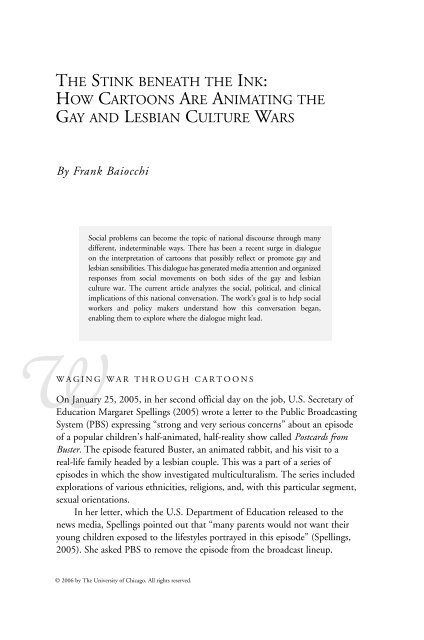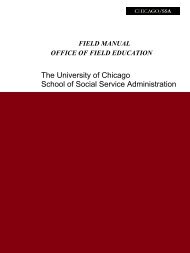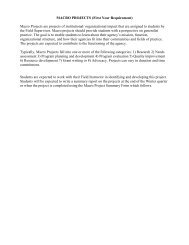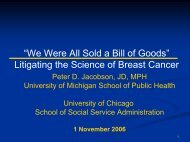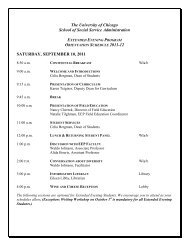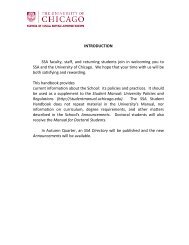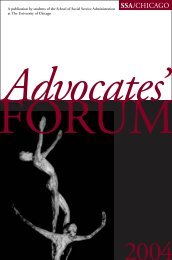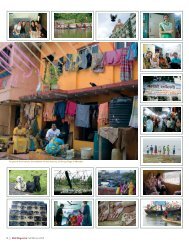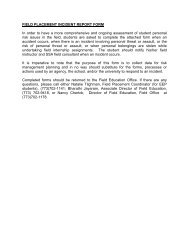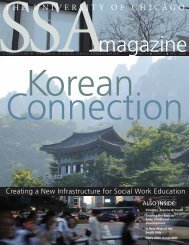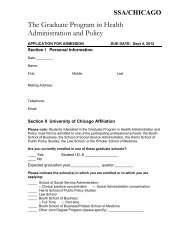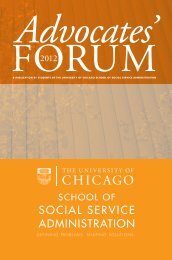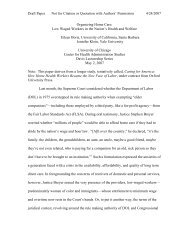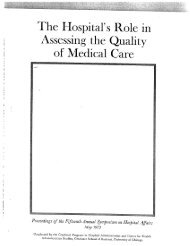2006 - School of Social Service Administration - University of Chicago
2006 - School of Social Service Administration - University of Chicago
2006 - School of Social Service Administration - University of Chicago
You also want an ePaper? Increase the reach of your titles
YUMPU automatically turns print PDFs into web optimized ePapers that Google loves.
THE STINK BENEATH THE INK:<br />
HOW CARTOONS ARE ANIMATING THE<br />
GAY AND LESBIAN CULTURE WARS<br />
By Frank Baiocchi<br />
<strong>Social</strong> problems can become the topic <strong>of</strong> national discourse through many<br />
different, indeterminable ways. There has been a recent surge in dialogue<br />
on the interpretation <strong>of</strong> cartoons that possibly reflect or promote gay and<br />
lesbian sensibilities. This dialogue has generated media attention and organized<br />
responses from social movements on both sides <strong>of</strong> the gay and lesbian<br />
culture war. The current article analyzes the social, political, and clinical<br />
implications <strong>of</strong> this national conversation. The work’s goal is to help social<br />
workers and policy makers understand how this conversation began,<br />
enabling them to explore where the dialogue might lead.<br />
WAGING WAR THROUGH CARTOONS<br />
On January 25, 2005, in her second <strong>of</strong>ficial day on the job, U.S. Secretary <strong>of</strong><br />
Education Margaret Spellings (2005) wrote a letter to the Public Broadcasting<br />
System (PBS) expressing “strong and very serious concerns” about an episode<br />
<strong>of</strong> a popular children’s half-animated, half-reality show called Postcards from<br />
Buster. The episode featured Buster, an animated rabbit, and his visit to a<br />
real-life family headed by a lesbian couple. This was a part <strong>of</strong> a series <strong>of</strong><br />
episodes in which the show investigated multiculturalism. The series included<br />
explorations <strong>of</strong> various ethnicities, religions, and, with this particular segment,<br />
sexual orientations.<br />
In her letter, which the U.S. Department <strong>of</strong> Education released to the<br />
news media, Spellings pointed out that “many parents would not want their<br />
young children exposed to the lifestyles portrayed in this episode” (Spellings,<br />
2005). She asked PBS to remove the episode from the broadcast lineup.<br />
© <strong>2006</strong> by The <strong>University</strong> <strong>of</strong> <strong>Chicago</strong>. All rights reserved.


